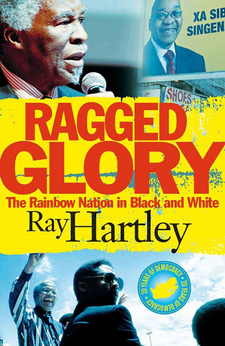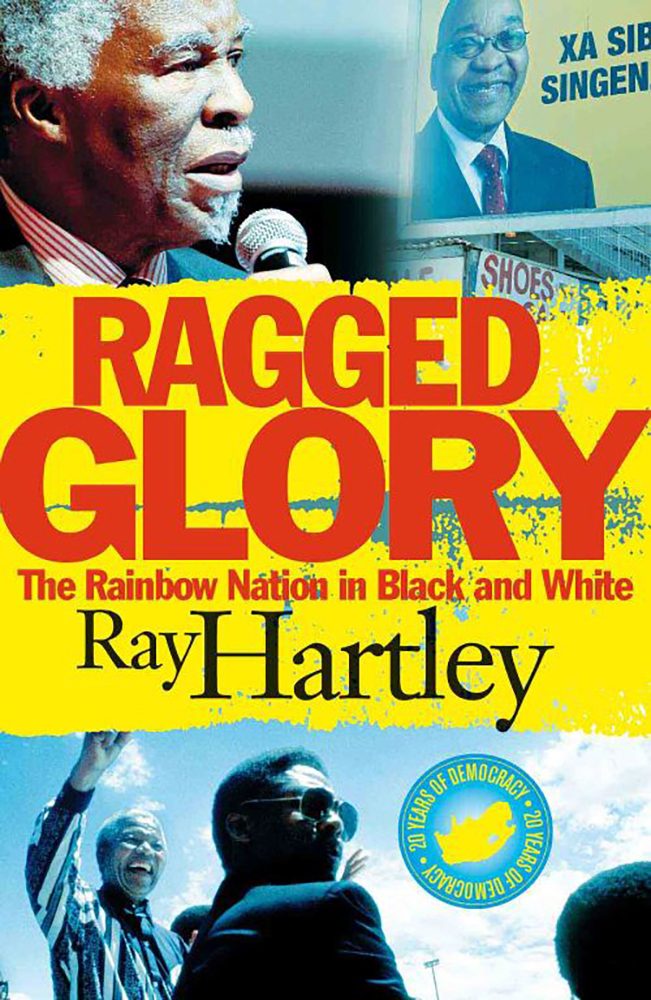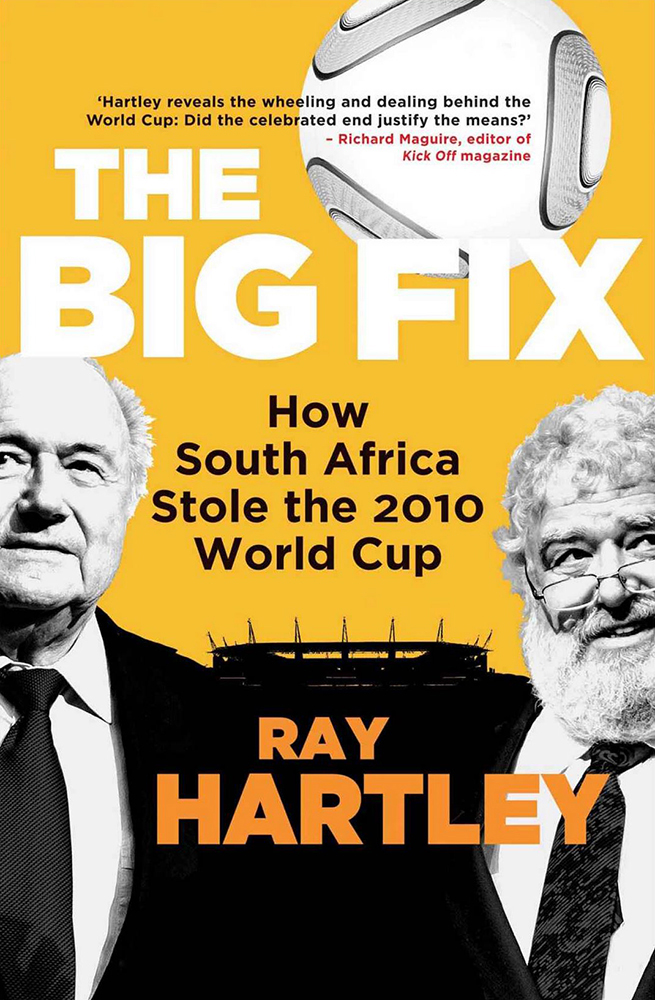Ragged Glory: The Rainbow Nation in black and white, by Ray Hartley

Ragged Glory: The Rainbow Nation in black and white, by Ray Hartley. Jonathan Ball Publishers SA. Cape Town; Johannesburg; South Africa, 2014. ISBN 9781868425563 / ISBN 978-1-86842-556-3
Refreshingly different from the spate of me-books on South Africa's transition to democracy, Ray Hartley the journalist and storyteller in In Ragged Glory: The Rainbow Nation in black and white weaves the power play, the politics, the blunders and the intrigue of South Africa's 20 wonder years into a readable, fluent tale.
[...] As an administrative official in the constitutional negotiations of the early 1990s, I watched negotiators such as Cyril Ramaphosa, Roelf Meyer and the late Colin Eglin shape the constitution that would guide the new democratic polity. As a political reporter, first for Business Day, and later for South Africa's largest circulation newspaper, the Sunday Times, I covered the months leading up to the first democratic election. I travelled extensively, visiting the conflict-ravaged townships around Johannesburg, the quasi-military training camps of the Inkatha Freedom Party deep in rural KwaZulu and the battlefield of Mmabatho in the then Bophuthatswana, where a right-wing coup attempt was put down. I reported on Nelson Mandela and F. W. de Klerk as they campaigned for votes in the lead-up to the election of April 1994. Once the dust of the transition had settled, I worked as political correspondent for the Sunday Times, covering the first democratic parliament and the Nelson Mandela presidency, travelling with him on historic visits to the United Kingdom, France and New Zealand. I followed Thabo Mbeki as he consolidated power at the centre and shifted the emphasis from reconstruction and reconciliation to transformation and fiscal conservatism. I travelled with him to Japan, China (including Hong Kong) and South Korea as he played to his strength as a diplomat. And I witnessed the incredible meltdown that saw him pursue bizarre policies on Aids and the accommodation of Robert Mugabe's increasingly renegade regime in Zimbabwe. As founding editor of The Times, I watched as Jacob Zuma administered the coup de grace at the ANC's 2007 Polokwane conference, which led to the party's putting Kgalema Motlanthe into office in 2008 to mark time until the 2009 election, when Zuma himself took power. Zuma's consolidation of the accumulation and cronyism, which had begun under Mbeki, and, to a lesser extent, under Mandela, has cast a shadow over the recent period. As editor of the Sunday Times, I saw much of this controversy unfold before my eyes as the country's top journalists courageously - and often at great personal cost - broke the scandals that have plagued the Zuma years, including the falls from grace of police commissioner Bheki Cele and public works minister Gwen Mahlangu-Nkabinde, the cronyism and corruption of cooperative governance minister Sicelo Shiceka, and the abuse of resources by communications minister Dina Pule. These exposes and their outcomes - all of these political bigwigs lost their jobs - is, at once, evidence of everything that is wrong and everything that is right with South Africa's democratic system. They should never have broken the public's trust, but, once they did, they were dealt with, albeit reluctantly. I have supplemented my memory by drawing on my extensive collection of primary documents, magazines, journals, interviews and notes from the period. In addition, I have interviewed many key players over the past two years. Cyril Ramaphosa and Roelf Meyer provided invaluable perspectives on the transition and the politics of economic empowerment. Joel Netshitenzhe, who served under all four presidents, offered powerful insights into the problems encountered by a new elite taking power. The observations of the last apartheid president, FW de Klerk, as well as those of opposition leaders Tony Leon and Helen Zille, were invaluable, as were those of Mark Gevisser, the author of the great biography Thabo Mbeki: The Dream Deferred. Gevisser's book is among several powerful works of non-fiction on which I relied. Others included Paul Holden and Hennie van Vuuren's study of the arms deal, The Devil in the Detail: How the Arms Deal Changed Everything, De Klerk's autobiography, The Last Trek: A New Beginning, Anthony Sampson's biography of Mandela and Andrew Feinstein's After the Tarty: A Personal and Political Journey Inside the ANC and The Shadow World: Inside the Global Arms Trade. I hope that by reading this book you will come closer to understanding the road that South Africa has travelled over the past twenty years. [...]
This is an excerpt from Ragged Glory: The Rainbow Nation in black and white, by Ray Hartley.
Title: Ragged Glory
Subtitle: The Rainbow Nation in black and white
Author: Ray Hartley
Publisher: Jonathan Ball Publishers SA
Cape Town; Johannesburg; South Africa, 2014
ISBN 9781868425563 / ISBN 978-1-86842-556-3
Softcover, 15 x 23 cm, 312 pages
Hartley, Ray im Namibiana-Buchangebot
Ragged Glory: The Rainbow Nation in black and white
Ragged Glory: The Rainbow Nation in black and white is the story of how Nelson Mandela, Thabo Mbeki and Jacob Zuma tried to shape South Africa's destiny in very different ways.
The Big Fix: How South Africa stole the 2010 World Cup
The Big Fix: How South Africa Stole the 2010 World Cup reveals the background of corruption, graft and greed behind the curtains of this event.


